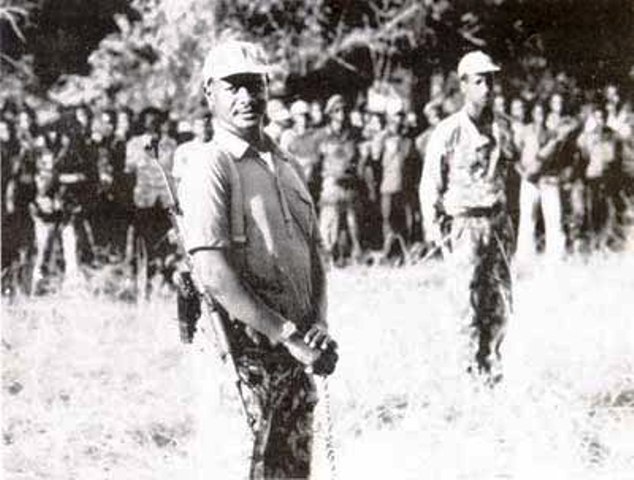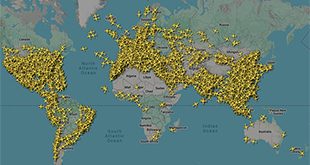
By Hashim Wasswa Mulangwa
January 26, 2014 marks 28 years since the National Resistance Movement/Army (NRM/A) of President Yoweri Museveni came into power. I have been thinking about what this milestone means to me, and trying to reflect on what it probably means of other Ugandans. You see the nature of the NRM/A struggle ensured that for my family and I, these January dates have both a political and personal meaning.
On January 23, 1986, our family of six is awoken with a screeching and loud sound over the house and a blast in the gardens a few meters away. My mother scrambles to get us together, as an uncle quickly leads us out of the house.
“Quick, we have to go,” he says.
The Najjanankumbi suburb of Kampala city where we lived has become a war zone; the NRA rebels on Museveni are in nearby Busega, and shelling army positions in Lubiri barracks which is in about the same locality.
It’s some of this shelling that has ended up in our garden. With nothing more than the clothes on our backs, we head out towards Entebbe Road, seeking safety.

My mother has six children to look after. The eldest is 10, and youngest is two years. Five days earlier on January 18, she had lost her husband after a week in Nsambya hospital.
My father was 42 years old when he died; shot by government soldiers as they tried to rob his car.
He had survived and lived through the horror that was the second regime of President Milton Obote’s regime (1980-85) and the Tito Okello Junta thet followed.
A few days after Obote’s overthrow, he had disappeared for days leaving mother worried sick. Then he shows up one morning, his shirt torn and bloody.
We were happy to see him safe, but the adults had other issues to attend to. You see, the night before, soldiers had shown up at our home – “Funguwa Mulango” (open the door) they had ordered. Before my mother could open, they kicked the door in. They asked for the man of the house and money.
My mother explained that we had no more valuables to pass on. She explained how our family had gone through this type of thing many times before as it was a `normal’ occurrence in our neighbourhood in Ndeeba and Najjanankumbi back then.
This place is a few minutes away from both Lubiri and Makindye barracks, so government soldiers would just slope down and come help themselves to anything; taking both property and lives.


On the day my father returned home after being picked up on “Panda gari” (military swoop) in Kibuye, and somehow surviving a few days in Makindye Barracks, he finds a truck parked in the compound, and soldiers loading our property on it. It is broad daylight at 10am in the morning!
The thieving soldiers had come the night before, and realising that there was nothing valuable left in the house, except for heavy furniture, they left and came back with the truck in the morning.
They asked my Uncle and a few neighbours to help load our household furniture on the truck, polite even- like they were shopping. My newly arrived father was also asked to help with the loading of his property on the robbers’ truck.
We did not care. We were happy to see him alive, we were happy to have him home. Except it was not for long because a few weeks later, these government soldiers – the ones that were supposed to protect the citizens, took his life in the most violent way.
Great expectations
The NRA/M came to power in that setting.
In his inaugural speech, President Museveni emphasised that saving Ugandans from the torment like my family went through was the principal objective of the NRM/A.
“Any individual or group of persons who threatens the security of our people must be smashed without mercy,” Museveni said.
With these strong and powerful words, a new public order, where the respect of human life and property, was established. To many, it might seem like something that one would take for granted, but as recent events of war and insecurity in south Sudan and the Central Africa Republic show, it should not be.
But when you are in power for 28 years as Museveni has been and have been able to establish public order for nearly all that time, what then are the expectations that people should have on you as leaders?
If there was ever anything that the NRA/M had established—it was the trust and confidence that Ugandans had in their leadership. And every leader knows that trust is the most important ingredient of any change generating process.
Growing up in the 90s, we looked up to and were inspired by our liberators; held onto their every word, and had so much faith in where our country was going.
And then something happened along the way.

Yesterday’s inspirers have become today’s instigators of public mistrust and the abuse of law. Those whose names had been associated with public admiration and respect are now associated with disrepute and shame. Those that preached the value of modesty in public life now live in the highest level opulence that this country has ever seen. They have presided over the worst form of state looting and corruption that this country has seen.
In fact, many of the key figures in the NRA/M have become associated with the most high profile cases of corruption and the misuse of power. From junk helicopters, ghost soldiers in the army through dubious deals that government has lost billions of shillings- look closely and you will find key members of the NRA/M at the forefront.
With all this, how do we hope to inspire today’s younger generation to engage in the process of decision making and national development?
The tragedy
Among this generation of leaders, identify one that you can put a platform to address young people; in their schools, associations and clubs, on a public issue that affects them- unemployment, health policy, education, leadership, and they will leave inspired and empowered to be engaged in matters pertaining to their country.
I was thinking about this when I watched Nigeria’s Central Bank Governor (outgoing); Sanusi Lamido, speak to young people at a TEDx event. (Please watch the video on line).
In it, Sanusi speaks about what he believes is the single most important obstacle in the way of Nigeria reaching its potential; the cancer of vested interest. Sanusi makes a strong case for young Nigerians to overcome the fear of vested interest, if their country is to change, and provides powerful examples on how, under his tenure- he confronted the scourge of corruption in the Nigerian banking sector, prosecuting CEOs that had swindled hundreds of millions of dollars of depositors money- to buy properties in Dubai, Washington, London. About these thieves that are denying our countries a lifeline, he says to the youth:
“You should not fear these people. They stand on quicksand. They have got only two tools. They are not very intelligent people. It doesn’t take much intelligence to steal. If they were smart, they probably would not be stealing. They would find other things to do.
“They have two weapons and two weapons only. First, is how much do you want? And if you don’t want anything, am going to destroy you! If you don’t want their money, and you are not afraid of them, you will destroy them. There’s nothing else there. You’re more intelligent!
“What does it take for you to say as a generation, that you are tired of my generation?”
It’s a powerful presentation.
The Tragedy of the 1986 NRA/M revolutionary is that he/she has become of symbol of vested interest, a symbol of Uganda’s inability to reach its full potential, a symbol of public distrust and loss of confidence.
That those that devoted their youth to saving this country from destruction (in the 70’s and 80’s) have become the biggest promoters of youth disempowerment is a terrible tragedy.
Today’s younger generation does not want to hear us tell stories about how we survived the turmoil of Idi Amin and Obote. They want to hear us tell them how to survive today’s turmoil. They want to know why, on account of the same liberators of the 1986 war, Ugandan politics has lost any semblance of dignity and serving a higher purpose. They want to hear that their government’s topmost agenda is the creation of jobs and opportunities for young people. They want to be involved in the running of their country; they want to be given an opportunity to contribute to solving todays problems. Most of all, they want to be proud about their country again. They are desperate for inspiration.

So if you are one of these revolutionaries, I beg that you pose and dwell on this thought. Your message around saving Uganda from the doldrums does not resonate with majority young that never experienced this turmoil. You do not inspire the younger generation but, instead, from you they have learnt the worst about our country and get no inspiration to do great things.
So I ask you, our dear NRA/M revolutionaries in your twilight years, as you read this, as you watch what is happening in Uganda today, how do you think you will be remembered in our country’s history? My bet is that despite your earlier sacrifice, your bad contribution to today’s Uganda will ensure that history will judge you harshly. And that is, an even bigger tragedy!
 The Independent Uganda: You get the Truth we Pay the Price
The Independent Uganda: You get the Truth we Pay the Price


